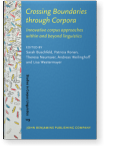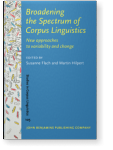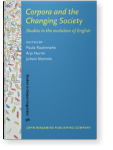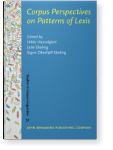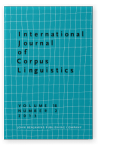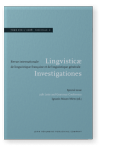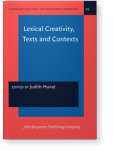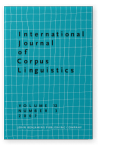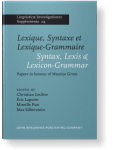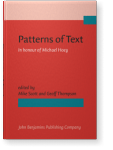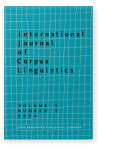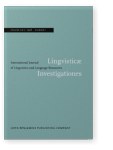Antoinette Renouf
List of John Benjamins publications for which Antoinette Renouf plays a role.
2024 Chapter 6. Establishing a ‘new normal’: Detecting fluctuating trends in word frequency over time Crossing Boundaries through Corpora: Innovative corpus approaches within and beyond linguistics, Buschfeld, Sarah, Patricia Ronan, Theresa Neumaier, Andreas Weilinghoff and Lisa Westermayer (eds.), pp. 125–152 | Chapter
In this chapter we introduce statistical methods and associated visualisations for the analysis of lexical change on a monthly basis in a 1.8-billion word news corpus spanning over 30 years. In previous work (Kehoe et al. 2022) we found examples of word frequency change in a data-driven manner… read more
2022 A data-driven approach to finding significant changes in language use through time series analysis Broadening the Spectrum of Corpus Linguistics: New approaches to variability and change, Flach, Susanne and Martin Hilpert (eds.), pp. 285–318 | Chapter
This paper conducts a diachronic study of language change in a corpus covering almost 30 years of mainstream UK news text. In our previous studies, several databases were compiled from the corpus, including diachronic records of word frequency, collocation and morphological analysis. Upon user… read more
2020 Semantic neology: Challenges in matching corpus-based semantic change to real-world change Corpora and the Changing Society: Studies in the evolution of English, Rautionaho, Paula, Arja Nurmi and Juhani Klemola (eds.), pp. 79–112 | Chapter
This study deals with contemporary real-world social change and its linguistic expression by means of neosemes, with the help of the WebCorpLSE automated collocation analysis software. The study briefly outlines the history and pattern of diffusion of each of the five user-defined neosemes, noting… read more
2013 A finer definition of neology in English: The life-cycle of a word Corpus Perspectives on Patterns of Lexis, Hasselgård, Hilde, Jarle Ebeling and Signe Oksefjell Ebeling (eds.), pp. 177–208 | Article
Neology can be identified in a text corpus at surface level by automatic means (Renouf 1993a). In a diachronic corpus of journalism a lexical neologism can be found by comparing each word in a stream of data with a baseline index. A semantic neologism is identifiable through the change in the… read more
2013 Filling the gaps: Using the WebCorp Linguist’s Search Engine to supplement existing text resources International Journal of Corpus Linguistics 18:2, pp. 167–198 | Article
The aim of this paper is to demonstrate the functionality of the WebCorp Linguist’s Search Engine (WebCorpLSE) by comparing it with two other freely-available online data resources: Google and the Corpus of Contemporary American English (COCA). In particular, the paper looks at how WebCorpLSE can… read more
2008 The phenomenon of lexical repulsion in text 25th Lexis and Grammar Conference, Mirto, Ignazio Mauro (ed.), pp. 213–225 | Article
The advances in computing technology which made possible the study of electronic text in large quantities opened the door to the study of lexis, and crucially of significant word collocation. The type and strength of preference or ‘attraction’ which obtains between two or more words has been the… read more
2007 Tracing lexical productivity and creativity in the British media: The Chavs and the Chav-Nots Lexical Creativity, Texts and Contexts, Munat, Judith (ed.), pp. 61–89 | Article
2007 Lexical repulsion between sense-related pairs International Journal of Corpus Linguistics 12:3, pp. 415–444 | Article
This paper builds on the groundwork and setting up of methods for an innovative approach to analysing text. We have proposed that there is a hitherto unexplored textual feature, which we call ‘repulsion’, which operates on the construction of meaning in an opposing way to that of word collocation.… read more
2004 Shall we hors d’œuvres? The Assimilation of Gallicisms into English Lexique, Syntaxe et Lexique-Grammaire / Syntax, Lexis & Lexicon-Grammar: Papers in honour of Maurice Gross, Leclère, Christian, Éric Laporte, Mireille Piot and Max Silberztein (eds.), pp. 527–545 | Article
The dialects of the region now known as France have been contributing words and idioms to the English language for the last millennium. These Gallicisms serve a number of purposes, from filling lacunae, to associating the writer with French sophistication and style, to creating particular stylistic… read more
2001 Lexical signals of word relations Patterns of Text: In honour of Michael Hoey, Scott, Mike and Geoff Thompson † (eds.), pp. 35–54 | Article
Editors’ introduction Renouf’s contribution, like those of Scott and Berber Sardinha, uses Corpus Linguistics (CL) techniques, analysing large amounts of text by computer. The focus in her paper is on the identification of signals of semantic relations. Thus the frame “or, more exactly” might… read more
2000 Contextual Clues to Word-Meaning International Journal of Corpus Linguistics 5:2, pp. 231–258 | Article
1996 Les Nyms: En Quête du Thésaurus des Textes Lingvisticæ Investigationes 20:1, pp. 145–165 | Article
This article presents the first results of a research project to develop an automated system for identifying thesaural items in electronic text (the ACRONYM Project). The main objective is the identification and use of nyms (words or groups of words occurring in similar collocational environments… read more
